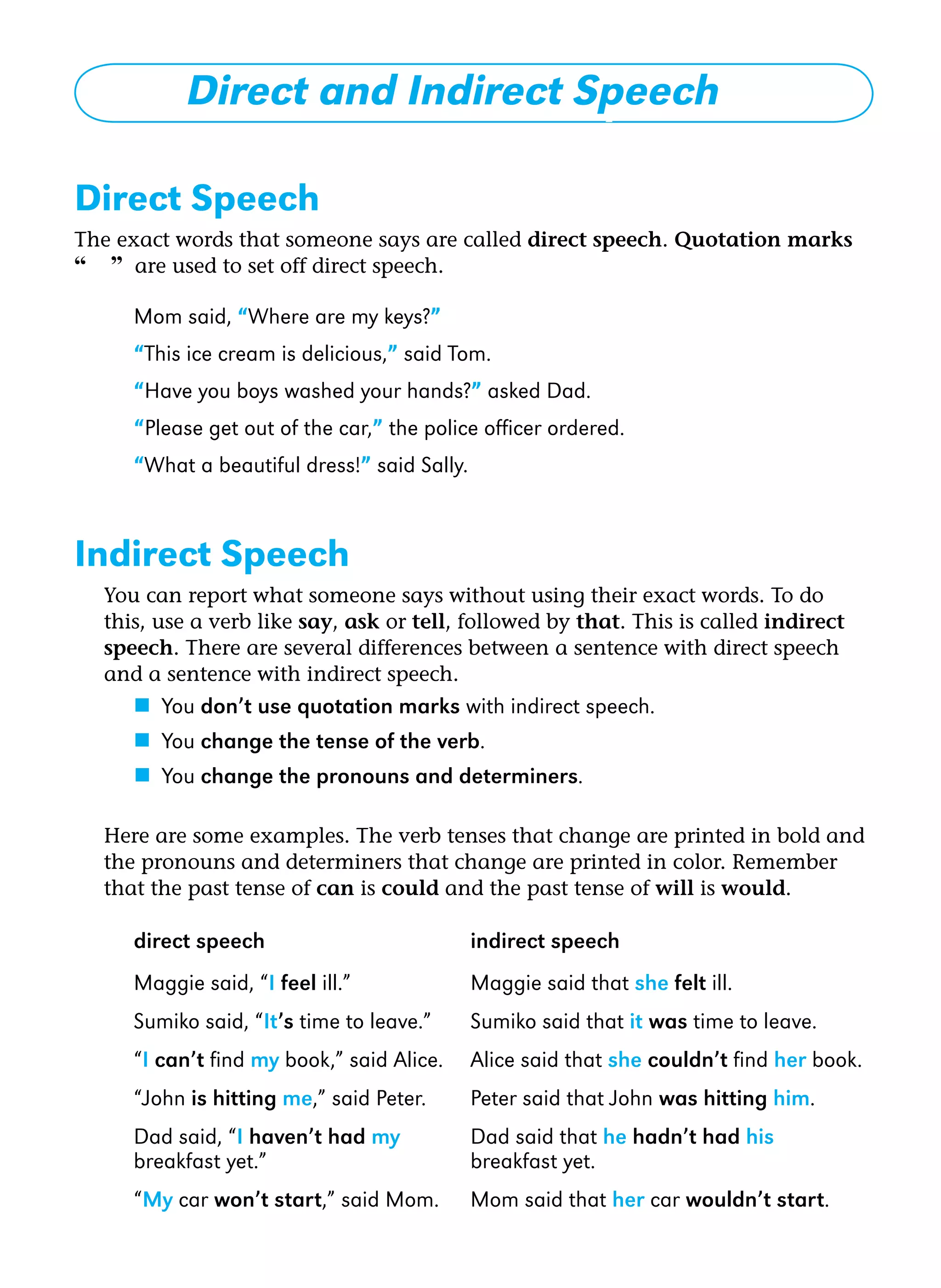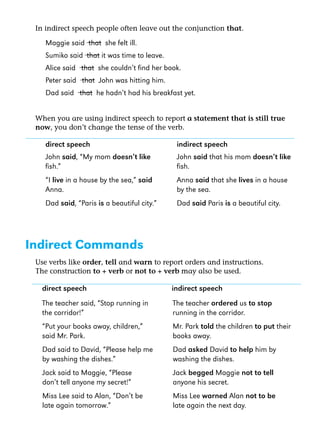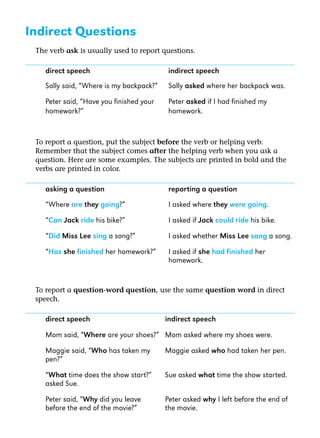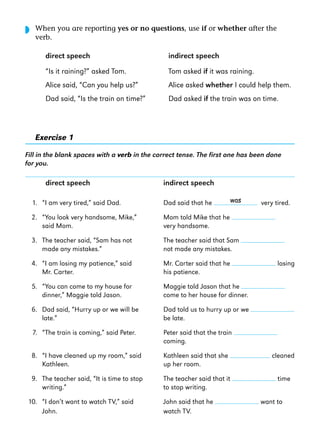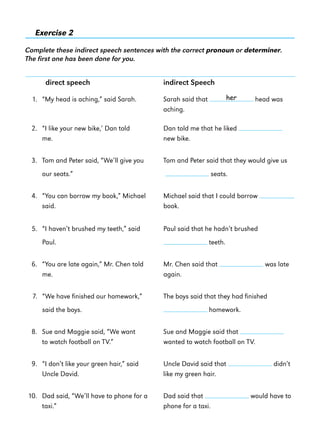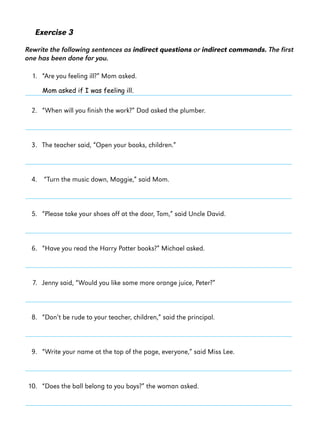The document discusses the differences between direct and indirect speech. Direct speech uses quotation marks to report the exact words spoken, while indirect speech does not use quotation marks and changes pronouns, verbs, and other elements to report the general idea of what was said without using the exact words. It provides examples of changing direct speech to indirect speech and discusses reporting commands, questions, and statements in the indirect form.
